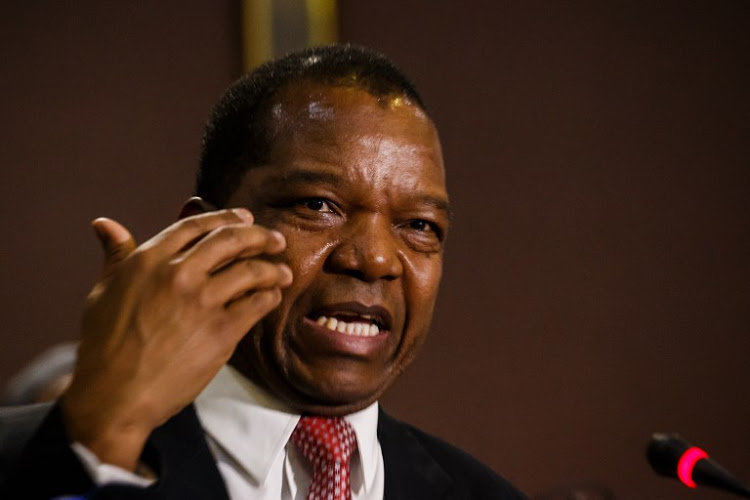Rumbidzai Ngwenya
THE government has moved to stabilise the prices of basic commodities, including tightening monetary policy by reducing reserve money growth target from 7.5 percent to five percent for the quarter ending June this year.
This comes as the prices of basic goods have been soaring in the last few weeks, putting a strain on the already struggling ordinary citizens.
In a statement yesterday, Reserve Bank of Zimbabwe (RBZ) governor John Mangudya, pictured, said the bank through its Monetary Policy Committee (MPC) was concerned with month-on-month and annual inflation.
Mangudya said when the committee met last week it reiterated the need for the central bank to remain focused on inflation reduction and putting in place additional policy measures in response to the resurging inflationary pressures and foreign exchange parallel market activities.
“While noting the decline in month-on-month inflation, from 6.99 percent in February 2022 to 6.31 percent in March 2022, the committee was concerned with the escalation in annual inflation, from 66.11 percent to 72.70 percent over the same period.
“Rising prices of oil, gas, fertilisers and other related products had the effect of increasing global inflation and inevitably had a negative impact on domestic costs of production and was destabilising the foreign exchange market,” Mangudya said.
The MPC meeting was meant to consider developments in the domestic and international macroeconomic environment as well as the impact of global geopolitical factors on the economy.
Mangudya said the committee had particularly noted that global inflation was on the increase as a consequence of the on-going Russia-Ukraine conflict which had secondary pass through effects on domestic and international prices.
“The committee resolved to put in place the following policy measures with immediate effect: reviewing upwards the bank policy rate from 60 percent to 80 percent per annum, reviewing upwards the medium term bank accommodation facility interest rate from 40 percent to 50 percent per annum as well as reviewing upwards the minimum deposit rates for local currency savings and time deposits from 10 percent and 20 percent per annum to 12.5 percent and 25 percent, respectively.
“The committee also resolved to liberalise the foreign exchange market by allowing banks to conduct foreign exchange transactions of up US$1 000 under an arrangement agreed upon between banks and the RBZ and in terms of which individuals with free funds and entities or corporates holding foreign exchange in their foreign currency accounts (after meeting the statutory surrender requirements) shall be free to sell foreign currency to banks on a willing buyer willing-seller basis, and ensuring that commercial imports are processed through normal banking channels in line with international best practice,” Mangudya said.
